| Previous
Page |
PCLinuxOS
Magazine |
PCLinuxOS |
Article List |
Disclaimer |
Next Page |
Eliminating Google From Your Digital Life |
|
by Paul Arnote (parnote) When Google was first started in 1998, its motto was "do no evil." Now, 20+ years later, it has become the embodiment of evil for many, many people. For better or worse, they did it to themselves. It is, in many ways, the worst of self inflicted wounds. The larger Google grows, so grows the list of grievances against it. Probably chief among those complaints is how it is "in bed" with the NSA, GCHQ, and all the other three and four letter spy agencies around the world. Right behind that is its disregard for your privacy. Google knows everything about not only your digital life, but pretty much your entire life. It knows where you've been, who you've phoned, what you've purchased, what you've viewed online, where you eat, where you sleep, what you like to read, what you like to watch, where you work, when you work, the routes you travel to and from work, etc., etc. There's little that Google doesn't know about you. Yes, their information about YOU is THAT pervasive and complete. Never mind the fact that despite using Linux as their default operating system, and despite using Linux as the core of their mobile platform (Android), they have given very little back to the Linux community. When Google SketchUp was around, Linux users only got a Wine-packaged Windows version of the software to run. When Google Picasa was around, Linux users were met with the exact same insult with the Picasa desktop app. Despite promises long, long ago, Google has NEVER released a Linux version of their Drive desktop client software, and even after it was revealed that they have a Linux version of their Drive desktop client that is used internally on a very regular basis. 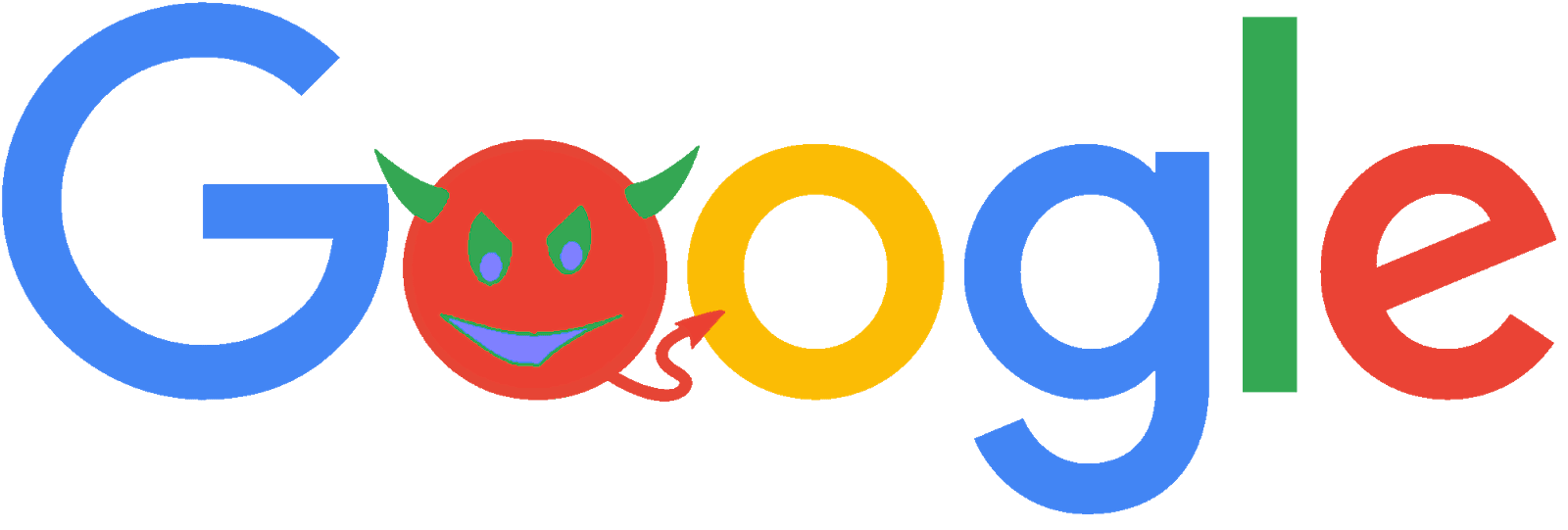 Google is everywhere, and has its tentacles in virtually everything we do online. Obviously, it IS the search engine of choice for many, many users. The name Google has even become a verb, as in "just Google it." It runs/owns Gmail. It owns YouTube. It has its fingers in providing blogging sites, cloud storage, photo storage, news aggregation, weather information, shopping, gaming, phone service, internet service, television service, mapping services, merchant rating/ranking services, a profitable app store, a free online office suite, a calendar service, books, finance, and many, many other aspects of online life. Google's primary source of revenue is from selling advertising. It uses all of that information it gathers about you and your life to target advertising to the things you like or have expressed interest in. Reportedly, Google never sells the information it collects about you to third parties. Google is quite good at collecting your data, too, since it's one of the largest and most successful corporations around. Their pursuit of profits supercede your rights to privacy, or any other rights you might have, at least in their corporate mindset. Them having their fingers in so many pies allows them to collect more and more and more data about you, and the more data they have, the more specifically they can target ads you might be interested in. As Google departs from its original motto, there is a growing body of users wishing to depart from Google's increasingly evil intrusion into our daily lives. Some old timers around here might remember an old PCLinuxOS forum administrator, named Hootiegibbon. Hootie has worked to "de-google-fy" himself as much as is possible. There are only a couple of Google services that he uses today that he is unable to (for his own personal reasons) distance himself from. As for the rest of his Google history, he has, should we say, "disengaged." He has even found an alternative email provider, giving Gmail the heave-ho about a year ago. 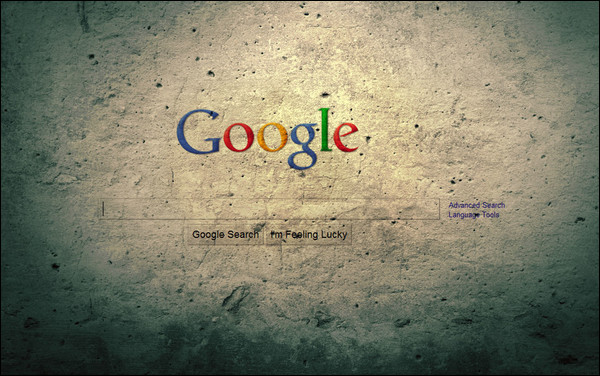 He isn't alone. I can name several current and former forum members who shun the use of Google services. But, because of Google's immense diversification, it will be rather difficult for most people to completely eliminate Google from their digital lives. Google is just like the serpent Hydra in Greek mythology, who grew back two heads every time you cut one head off. Each head not only spits poison, but it also helps to feed the monster. And, if you use an Android smartphone or tablet, the odds of getting Google out of (or minimizing its footprints in) your digital life are extremely longer. Android is Google's mobile platform, and Google's tentacles are inextricably woven throughout just about everything you do on an Android device. So, while this article is entitled "Eliminating Google From Your Digital Life," you might not be able to completely extricate yourself from Google's grasp. At best, you will likely be able to minimize their intrusion into your digital life. Eliminating Google from your digital life is going to be a very, very difficult task, and may be impossible. The first place to start is by deleting your Google search history. In fact, an old article on CNBC's website got me thinking about this. Their article centered around using the Google app on a mobile device. I'll expand here to also include how to do the same thing on the desktop. Whichever method you use, the results will be the same. On the mobile device, your desktop data will also be displayed for a given account. On the desktop version, your mobile data will also be displayed for a given account. So, you can achieve the same results on either platform. Let's take a look at the mobile platform first. On your mobile platform, launch the Google app. 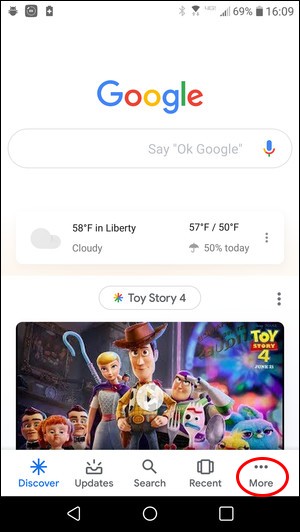 Once you open your Google app, click on the "More" button. 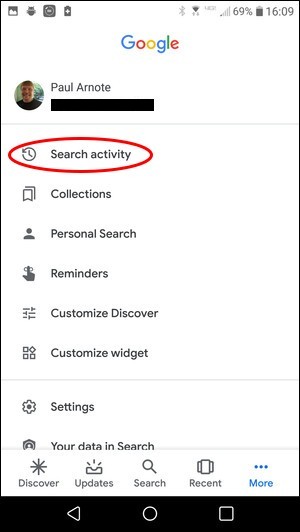 Next, click on the "Search Activity" menu item. 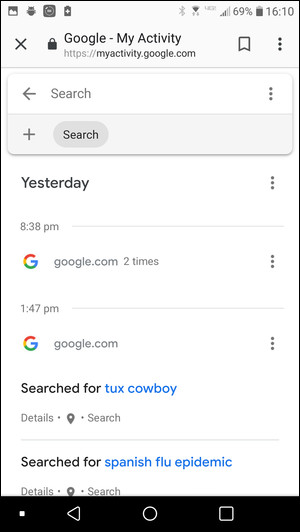 Then, choose the three dot menu that's to the right side of the line that says "Search." Select "Delete activity by..." from the menu. 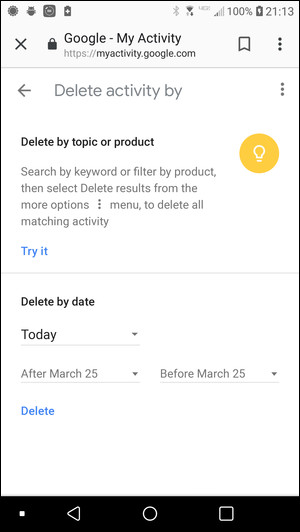 In the lower half of the screen, you will see the "Delete by date" dropdown list box. If you open it, one of the choices is "All time." Selecting this will delete ALL of your search history. From the same three dot menu that got you to the above screen, you can also choose the "Other Google activity" menu item. This will give you an option to delete all sorts of items on individual Google services. There's a lot to go through on that screen, with many, many options available. Now, when you do the same thing on the desktop, you have more options. In the end, though, the same objectives are achieved. To get started, click on your login logo in the upper right corner of the Google homepage. Select the "Google Account" button in that popup window. 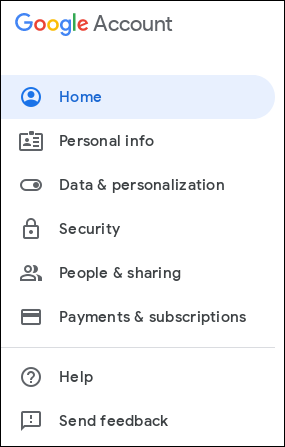 From the menu that appears on the left side of your screen, select the "Data & personalization" option.  The third "section" down among the choices is the "Activity and timeline" section. Click on "My Activity." 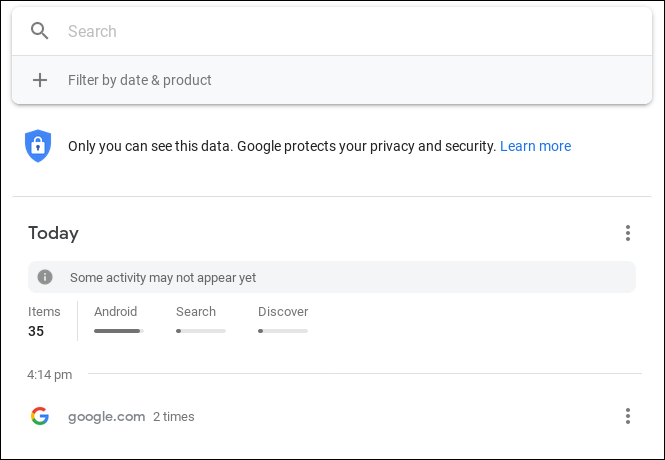 Click on the "+" sign next to "Filter by date and product." 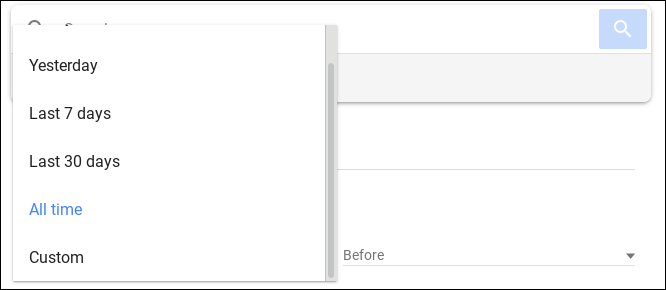 Under "Filter by date," choose what time frame you want to include when deleting your Google history. 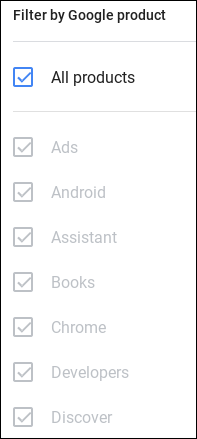 Under "Filter by Google product," you should find "All products" already checked. If you choose, you can clear this checkmark, and select individual Google products that you want to delete your history for. The Search For Replacements Replacing Google services isn't necessarily going to be easy, given Google's reach and the breadth of their services. But, replacements do exist. You are not alone in searching for alternatives, either. In fact, I wasn't aware of many of these alternatives until I did a search for them for this article. Search: Believe it or not, there are other search engines out there besides Google. Of course, Yahoo! is still out there and perking along. Yahoo! was recently purchased by Oath, who is owned by Verizon Wireless. Verizon has a very lackluster reputation for protecting the privacy of its users. Then there is Bing, from Microsoft, who also fails to excel in the protection of user privacy (to put it mildly). But there are two in particular that do an exemplary job of preserving your privacy, and provide search results without tracking you. DuckDuckGo and StartPage both fit into this category. DuckDuckGo pulls in search results from several different search engines, while stripping out your personally identifiable information. StartPage uses Google for its search results, but also strips out your personally identifiable information. It also offers a proxy service, so you can browse websites safely and anonymously. If none of these are what you are looking for, FossBytes lists 12 alternatives to using the Google search engine. Video: There is no denying that YouTube is the largest of the video sites. 300 hours of video are uploaded to YouTube every minute. Nearly 5,000,000,000 (yes, billion) videos are viewed on YouTube every day. In an average month, 80% of adults 18-49 watch a video on YouTube. But, as YouTube has evolved, it has decreased the monetization of videos for those who provide content. It has also been accused of having a heavy hand when it comes to censorship. But, alternatives do exist. DailyMotion is one such service. It has a similar layout to YouTube, making navigation easy. It does limit the uploading of HD videos to Pro level users, and there is a 4GB file size limit on videos (about 60 minutes). If you can work around these limitations, then it provides a viable alternative to YouTube. Vimeo is another popular alternative that strives to feature videos without all the distractions. It's not perfect, though, limiting uploaders to a maximum of 500MB uploads per week. You can "upgrade" to a maximum of 5GB uploads per week, for a monthly fee. Metacafe focuses on short videos, with a limit of 90 seconds. Vevo is the place to go for music videos. The Internet Archive offers up all sorts of old, off-beat videos that you probably can't find anywhere else. Included there are lots of Three Stooges videos, Charlie Chaplin movies, and a LOT of "B" SciFi films. There are others, and TwitGoo compiled a list of 15 YouTube alternatives, if none of these fit what you're looking for. Office Suite: This one is a little more difficult to find a replacement for. Of course, you can always use LibreOffice and share files back and forth. But, if you're looking for a collaborative environment, LibreOffice isn't necessarily going to be the easiest avenue to travel. You could use Office 365, but there are two drawbacks to it. First, it's Microsoft. Second, you will have to pay ($70 U.S. for an annual subscription, personal use only). For a free alternative (Google Docs is also free), look to ONLYOFFICE, which is a nice Google Docs alternative. You will have to set up an account, but it does a nice job as a Google Docs alternative. Zoho Docs is another free alternative that behaves almost exactly as Google Docs. In fact, when the magazine staff was experiencing issues with a change in Google Docs a few years back, we briefly used Zoho Docs until the Google Docs issues were straightened out. There are a few others that may or may not fulfill your needs, but Beebom reviewed 10 of them. Most are free, but some require payment.Summary While not all-inclusive, this list of alternatives should get you well started on your way to at least lessening your reliance on Google for common, daily online activities. Of course, there are other ways to lessen Google's grip on your digital life. For example, PCLinuxOS users can get a free email account at PCLOS-Mail. If you maintain a blog, you can find web hosting for your personal web page, and run your blog with WordPress or one of the other web content management software packages. The price would, for many, be worth it for the peace of mind. For photo storage, you could use Flickr instead of Google Photos, or the image sharing site hosted by YouCanToo that's only for PCLinuxOS users. Then, of course, there's the alternative of doing nothing at all, and resigning yourself to using Google's services. Sometimes, that is the best choice, dependent on your needs and your situation. As always, the choice is yours. Meanwhile, don't feel bad for Google that users are trying to escape their grasp. There are always those who don't care one iota about what Google does with their data, and those users will always exist. There will always be new, naive users who are ignorant about such topics. But whatever the case, Google created this situation themselves with their cavalier and uncaring attitudes towards user privacy. If you are privacy-aware, then the decision rests only with you as to whether you can tolerate Google's attitudes towards your privacy. |






